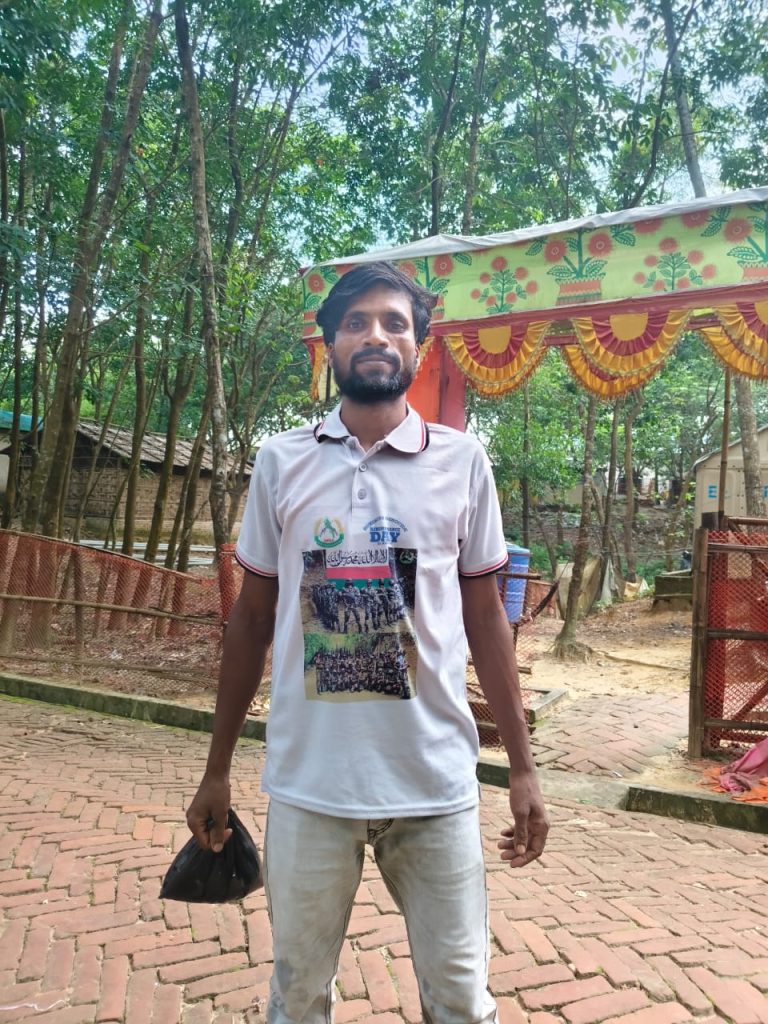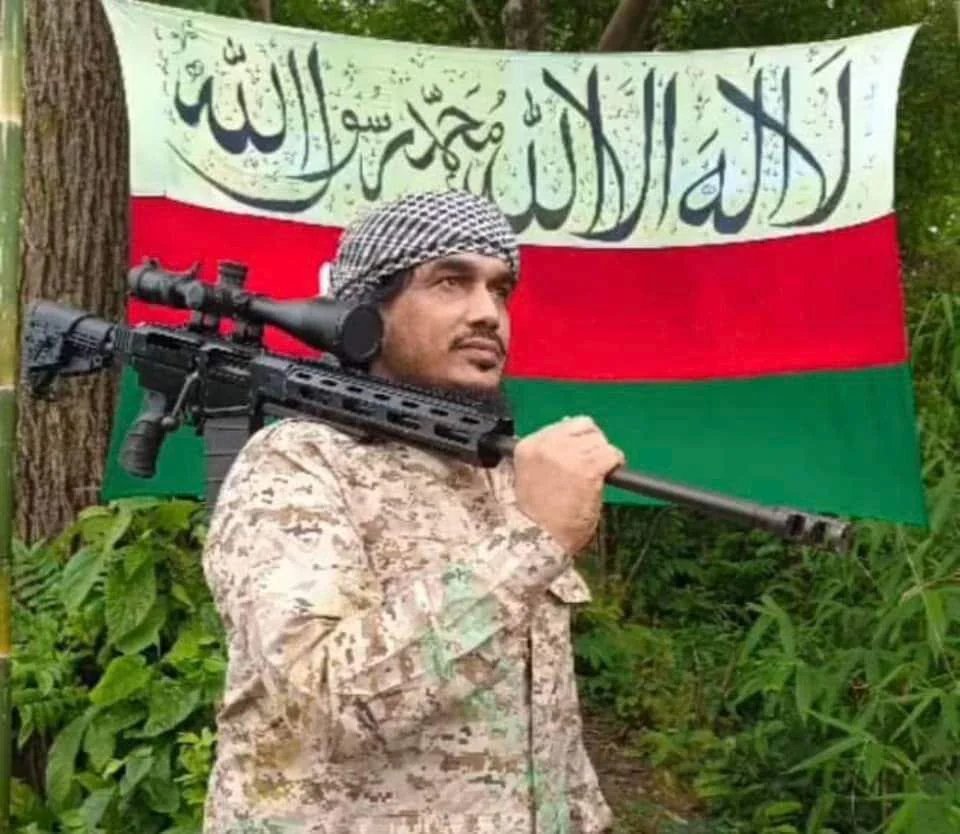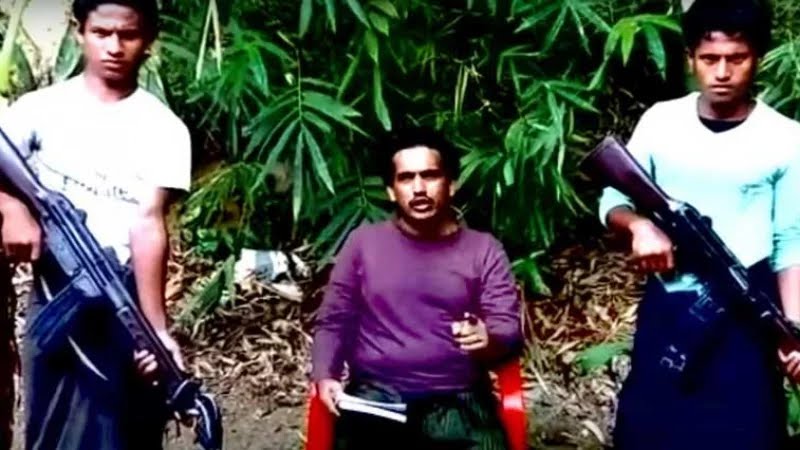In the shadow of the world’s largest refugee settlement in Cox’s Bazar, Bangladesh, a dangerous paradox is unfolding. While the UNHCR claims to provide shelter and protection to the persecuted Rohingyas, jihadist operatives of the Arakan Rohingya Salvation Army (ARSA) move freely inside the camps — threatening, intimidating, and even issuing execution orders against vulnerable minorities, according to an article by the Weekly Blitz.
Among those most at risk are the Rohingya Christians, a tiny community of just 2,000–2,500 people, who live under constant fear of harassment, abduction, forced conversion, and even death. The shocking presence of known ARSA militants inside the UN-run Kutupalong Transit Centre raises serious questions about negligence, complicity, and the silent empowerment of extremists.
ARSA jihadist inside transit centre
One such militant is Abdul Zolil, a self-declared ARSA member, who has been living inside the Kutupalong Transit Centre with his wife for the last two years. While the facility is supposed to provide protection to the most vulnerable, his presence highlights how terror operatives coexist under UN protection without facing accountability.
Rohingya Hindus mourn 113 members killed by ARSA terrorists
Rohingya Conference: Yunus out to destroy Bangladesh in new international plot
Chhatra Majlish threatens police for arrest of Rohingya Christian pastor
For the Rohingya Christians, who fled to this centre after the brutal January 2020 attacks against their community, the threat is existential. Survivors recall how radical Muslims abducted Christian men, raped young girls, injured dozens, and destroyed schools and churches — leaving deep scars that still haunt them today.

Instead of receiving safety, Christians inside the camps live under constant intimidation. ARSA members routinely threaten them with violence for holding prayers in makeshift churches and pressure them to convert to Islam. Even in death, discrimination persists: Christians have no dedicated graveyard and are forced to bury their dead secretly in Muslim cemeteries.
Threats of death and blasphemy allegations
The situation escalated recently when ARSA jihadists pasted posters of three young Christians across the camps and circulated videos on social media calling for their execution on charges of “blasphemy”. The fatwa against these youths was issued by a cleric from the infamous Hathazari Madrasa in Chattogram, who currently resides in Camp-15 Jamtoli.
ICG: Rohingyas from Bangladesh camps are fighting against Arakan Army
Demand for return to East Pakistan, led by Yunus-Azmi, growing in Islamabad, Dhaka
Despite pleas to Bangladeshi authorities and the UNHCR, the threatened Christians have received no meaningful protection, reinforcing a culture of impunity for jihadists and abandonment of minorities.
A community under siege
For years, ARSA has manipulated the wider Rohingya Muslim population, inciting hatred against Christians and branding them “agents of the West”. Local Bengali officials and Islamist residents from adjoining areas also support this toxic narrative, pushing for conversion and social ostracism.
NCP preparing for Turkish-style armed jihad in Bangladesh, assault on India
The result has been systematic persecution: forced conversions, constant threats, and the silencing of Christians who dare to openly practice their faith. For a community that already survived violence in Myanmar, life inside the Bangladeshi camps has become another prison — one guarded not by fences but by fear of jihadist violence.
ARSA’s campaign for Ata Ullah

On August 25, the anniversary of Myanmar’s military assault in Rakhine (2017), ARSA members staged an open propaganda campaign inside the refugee camps. Militants displayed posters of Ata Ullah, the group’s Pakistan-born and Saudi-educated chief, who was arrested by Bangladeshi authorities in March.
Clad in t-shirts with his image, militants openly demanded the release of Ata Ullah, thus glorifying him as a defender of Rohingya Muslims. One poster declared: “God willing, the sun of justice & freedom will rise soon. When a nation stands up for its rights, no force can bend it”.
Shockingly, even inside the UN-run Transit Centre, Abdul Zolil roamed freely in pro-ARSA attire while rallying support for Ata Ullah’s release. Islamist groups in Bangladesh also joined the chorus, staging demonstrations in Dhaka — including the March for Gaza rally in Suhrawardy Udyan — effectively merging pro-Palestine rhetoric with demands for ARSA leadership.
Who is Ata Ullah?
Ata Ullah, also known as Abu Ammar Jununi, is a veteran jihadist with deep international connections. Born in Karachi to a Rohingya father, he grew up in Mecca, where he received madrasa education. Disappearing from Saudi Arabia in 2012, he reemerged as a militant commander in Myanmar.

With backing from Al-Qaeda, Jamaat-ul-Mujahideen Bangladesh (JMB), Harkat-ul-Jihad-al-Islami (HuJI-B), and Hizb ut-Tahrir (HuT), Ata Ullah founded Harakah al-Yaqin (Faith Movement), which later evolved into ARSA. His group gained momentum during the rise of ISIS and AQIS in South Asia, orchestrating deadly attacks on Myanmar’s military in 2016–17.
Despite his notoriety, Ata Ullah managed to avoid serious crackdowns for years, thanks to alleged protection from the Islamist faction inside Bangladesh’s military intelligence, which saw ARSA as a potential proxy force.
Pakistan’s ISI and the Rohingya agenda
Sources confirm that a faction of Bangladesh’s army officers — both serving and retired — is actively working with Pakistan’s Inter-Services Intelligence (ISI) to recruit Rohingya refugees, including ARSA operatives, for a new militant front. The goal is to destabilise Bangladesh and India while positioning the Rohingya issue as a tool for regional jihadist geopolitics.
This nexus between ARSA, Pakistani intelligence, and local Islamist outfits poses a grave threat not only to the already fragile security in Cox’s Bazar but also to South Asia’s broader stability.
The presence of ARSA militants like Abdul Zolil inside a UNHCR-run facility is not just an administrative failure — it is a ticking time bomb. While the international community loudly proclaims its commitment to human rights, its silence on the plight of persecuted Rohingya Christians is deafening. Each day that jihadists roam freely under UN watch, the credibility of humanitarian organisations erodes further.
Bangladesh and the UNHCR must answer a fundamental question: are the refugee camps meant to protect the vulnerable — or to shelter terrorists plotting the next wave of violence? If urgent action is not taken, the Rohingya crisis risks transforming from a humanitarian tragedy into a regional jihadist breeding ground with consequences far beyond Cox’s Bazar.